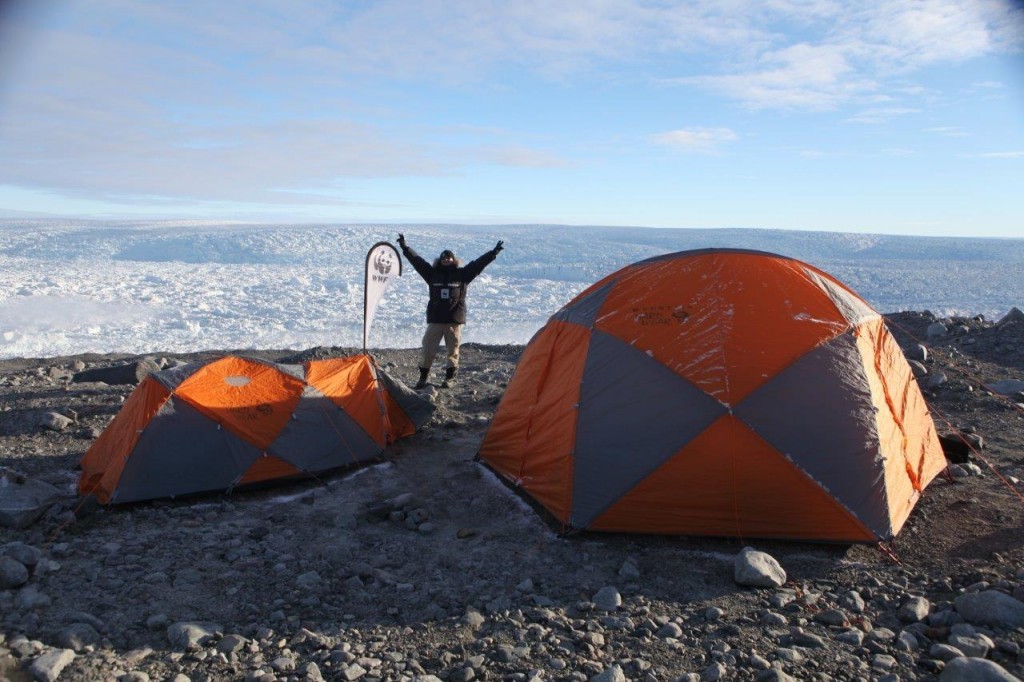
Last week, I was in a small tent on the vast Greenland ice sheet with a leading British glaciologist investigating and documenting the alarming rate of ice flow and melt as a result of climate change.
Despite having spent the last two decades working in the Polar regions, I am still overwhelmed by the sheer scale and stark beauty of the landscape. The Greenland ice sheet is about seven times the size of the UK, and in places, the ice is three kilometres deep.
So I could not have been more pleased to return to an announcement from Royal Dutch Shell that they will abandon their $7billion folly to drill in the Chukchi Sea, off the coast of Alaska. This is good news for the Arctic, and good news for humanity as a whole.
WWF has long opposed drilling in this Arctic region, where a spill would have severe and lasting impacts on wildlife, fisheries and local people. There is no reliable technology for the effective containment, recovery or clean-up of oil spilled in icy waters. Shell’s previous attempts to drill in the Chukchi Sea ended badly, from damaged vessels to malfunctioning safety equipment, to onboard fire. Most notably, Shell lost control of its drilling rig in January 2013 and it grounded on a pristine island in the Gulf of Alaska.
Drilling is also at odds with global action on climate change. The scientific evidence is that the majority of the world’s known fossil fuel reserves must stay in the ground in order for the world to stay below 2 degrees of global warming.
Climate change is happening, and there is no place where it is more evident than in the Polar regions. The Arctic is warming about twice as fast as the global average, sea ice is in long term decline, and the Greenland ice sheet is losing mass at an accelerating rate.
If carbon emissions continue unabated, the Greenland ice sheet has the capacity to raise sea levels by about six or seven metres, threatening many of the world’s major cities. There is overwhelming scientific evidence showing that the majority of the world’s known fossil fuel reserves must stay in the ground in order for us to avoid dangerous climate change.
Globally, 2015 is on track to be the warmest year ever recorded and in December, UN climate negotiations will take place in Paris that will move us a step closer to transforming the global economy to a low-carbon future.
With China and the USA agreeing this week that they will work together to tackle climate change, it is time for Shell and other energy companies to be a part of the solution in the transition to a renewable future.
Shell’s Arctic misadventure illustrates that any further investment in offshore oil development in the Arctic is not worth the risk, and that instead, investors should move their funds to low-carbon solutions.
Rod Downie is the Polar Policy and Programme manager at WWF-UK. He joined WWF having spent 14 years at British Antarctica Survey working on environmental management and policy. He has also been part of the UK delegation on the Antarctica treaty consultative meetings for nearly a decade.
Recommended for you
